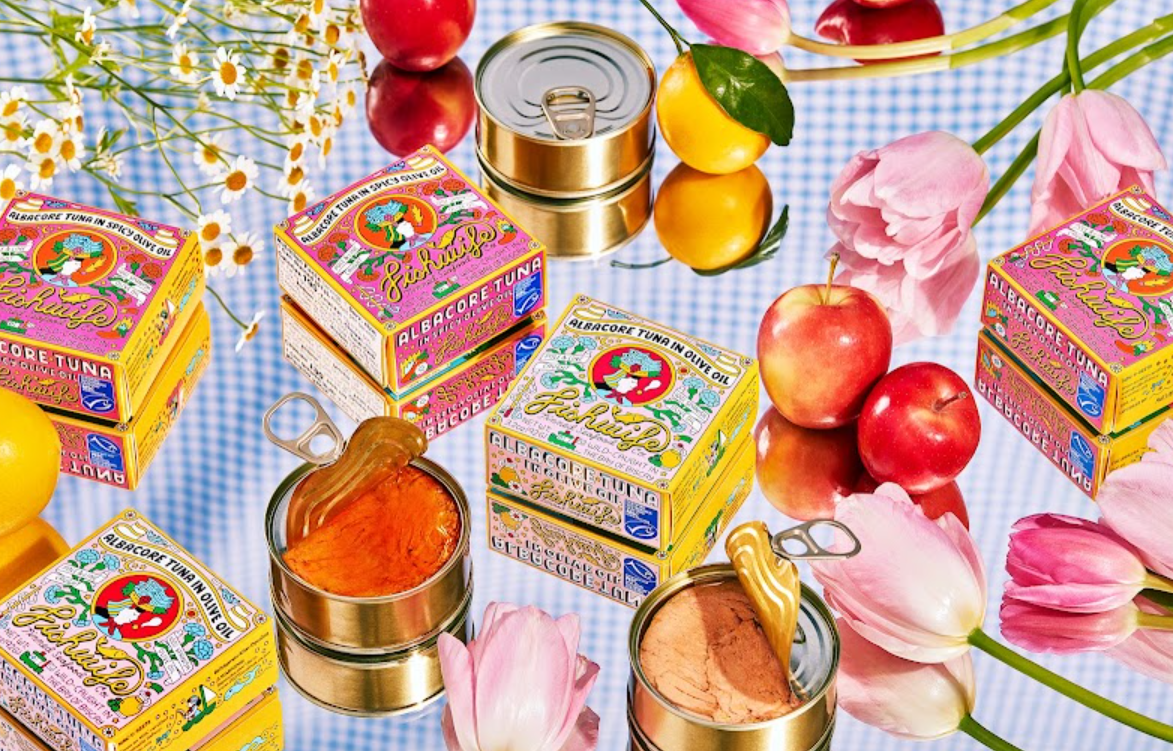In 2020, Los Angeles, California, U.S.A.-based tinned seafood company Fishwife Tinned Seafood Co. entered the seafood market in response to a growing interest in the space among digital influencers and foodies.
Fishwife CEO and Co-Founder Becca Millstein, a former marketing professional who specialized in brand partnerships, recognized an opportunity to offer products that are not only shelf-stable and high in protein but also boast a clean label and impressive nutritional profile.
The company aimed to elevate the reputation of tinned seafood in the U.S., Millstein said, hoping to get American consumers to view tinned products in the way Spanish and Portuguese consumers view high-quality conservas products.
Before getting off the ground, though, the company needed to develop a name, eventually landing on Fishwife, which pays homage to the wives of fishermen who historically sold their husbands' catches at markets. These women were known for their assertiveness and business acumen – qualities that Millstein said resonate with the brand's ethos. Millstein said the name reflected both a connection to traditional seafood culture and a modern, empowered approach to business, as Millstein’s business is a female-led company.
“We found this word by just Googling seafood terminology, and it was originally a completely neutral term [in] the 16th century that referred to the wives of fishermen who sold their husband's fish at the market," she said. "Because their fresh fish was so perishable, they gained the reputation of being bossy, loud, and foul-mouthed, swearing a lot to try to move their fish as quickly as possible. Then, over the years, it evolved into a gendered insult for women who are very bossy and loud. The cool flip side of it is those fish wives generally had more access to essentially running their own businesses since their husbands were out at sea.”
After developing the branding, Fishwife began selling smoked albacore tuna and salmon sourced from the U.S. Pacific Northwest. The brand quickly expanded to include Spanish sardines and other products sourced from Europe, leveraging the expertise of generational canneries.
Currently, approximately two-thirds of Fishwife's product by volume comes from European sources. The company takes a lot of inspiration from European conservas, but the company believes it separates itself from those markets by employing a unique approach to branding, with a focus on a modern, community-driven model that traditional canned fish brands rarely put into practice.
This strategy has created a cultivated and dedicated following, according to Millstein, with Fishwife maintaining close relationships with its customers through direct-to-consumer sales and engaging content.
“We now have a community of more than 350,000 people online,” Millstein told SeafoodSource. “That is such a core part of the business and has ended up differentiating everything we do from the other canned fish brands because we're building alongside our consumer base. Along with that thread, we have this … incredibly engaged fan base. They're buying hundreds of thousands of dollars of lifestyle merchandise from us, for example, which has never happened with a seafood company before.”

A significant milestone for Fishwife came when it inked a partnership with Whole Foods, which became the company's ...








